Electric and hybrid vehicles from automobile brands including Tesla, Mercedes-Benz and BMW were on display for members of the public to learn about and test drive at the University of Massachusetts on Wednesday.
At the Electric Vehicle Ride and Drive, those in attendance had the opportunity to take several electric vehicles, or EV’s, out for a spin and participate in an EV overview workshop. The event took place in the parking lot outside of UMass Transit Services.
The Ride and Drive was co-sponsored by several groups including UMass Transit Services, UMass Parking Services, Sustainable UMass, UMass Workplace Education and the Pioneer Valley Electric Automobile Association, according to the event’s webpage.
According to UMass Transportation Services, UMass offers a 20 percent discount on parking permits for sustainable, or “clean,” vehicles as a reward for commuters who reduce their environmental impact with their automobile.
Unlike the other EV’s and hybrids on display at the Ride and Drive, including the Chevy Bolt, Hyundai Ioniq and Nissan Leaf, the Teslas were not available to test drive, but owners did allow attendees to sit behind the wheel.
Mary Glavin is a Shutesbury resident and UMass environmental science alum who brought her Tesla Model 3, shared between herself and her husband, George, to the Ride and Drive.
Glavin said she and her husband bought their Model 3 as a splurge in December 2018. Despite the high price tag of $58,000, with certain extra features included, the couple was able to receive credit equal to a $10,000 rebate. According to Glavin, a quarter came from the state of Massachusetts and the rest came from the federal government.
“It brings it down to the price of a good Audi or a nice BMW,” Glavin said.
While drivers can connect to any 110 volt outlet to charge their car battery, these outlets take a great amount of time to charge, Glavin explained. Electric vehicles are charged much faster by 220 volt outlets — similar to ones a home dryer plugs into.
For Tesla owners, they can also access the company’s superchargers dispersed across various locations and which charge their EV’s the fastest.
The nearest Tesla superchargers are located along Interstate 91 in Hadley, West Springfield and Brattleboro, Vermont, according to the company’s website.
“When you go to a supercharger, you get the hose and you just put it by the port and the port will open and it’s called ‘a handshake,’” Glavin explained. “So the supercharger handle will connect to your car and it will know ‘Oh, that’s Mary and George’s car.’ You plug it in, it does its thing and you get the charge and it charges your credit card.”
According to Glavin, who usually charges with a 220 volt outlet, “It charges roughly 10 percent battery in one hour.”
“Our electric bill has gone up about $100 a month, but my husband’s not filling the gas tank up every three days to go to work and back, which is nice,” she added.
George Glavin commutes 130 miles roundtrip with the couple’s Tesla several days a week to his job in Hudson, Mass.
“So that’s like 600 miles a week. If he takes [the Model 3] three days a week, [that’s] 400 miles of no emissions, no CO2, no gasoline for those days,” Glavin said. “You know you can’t save the world all by yourself, but if we all did a little bit and took that little bit of CO2 out that would be great.”
Additionally, according to Glavin, the Model 3 has a maximum range of 310 miles on a full charge. However, this forces drivers to take into consideration the distance they travel daily and how much to charge their vehicle nightly or along their journey.
This is among one of several factors EV owners must take into consideration versus a traditional car with a gasoline powered internal combustion engine, Glavin explained.
“The cold weather does affect the battery a little bit. We did notice when we had those super cold days that it does kind of drain your battery just like your cell phone,” Glavin said. “The man with the Nissan Leaf said it really drained his, like 30 percent, we noticed maybe 10 percent drop.”
Glavin said in the winter she and her husband had to think ahead and charge extra, but overall the added costs and consideration is worth due to her affinity for renewable energy and a desire to “put the money where the mouth is.”
Jack Lochhead, a resident of Conway, Mass. and a Tesla Model X owner, also brought his EV to the Ride and Drive.
In one memorable occasion with his Model X, Lochhead said he drove cross-country to California and back, despite the need to stop and charge at various points along the way.
“We find that if you do a full day of driving [in the Model X], 500, 600 miles, you’re really relaxed, you’re not frazzled at the end of that,” Lochhead said. “With a gas car you’re pretty much done in at the end of a long day of driving.”
Added bonuses of his Model X that Lochhead noted including the autopilot feature, the navigation system which determines charging stations along one’s desired route, the smooth and silent driving at even 70 or 80 miles per hour and the free supercharger policy he owns.
“We drove to California and back and our only expense was buying a bottle of windshield wiper fluid,” Lochhead said, in reference to not needing to pay for gas or maintenance.
Lochhead believes despite the current higher price tags on EV’s that a tipping point is likely to occur within the next decade, or even the next five years, as battery prices — the most expensive part of an EV — continue to fall with better technology and wider use.
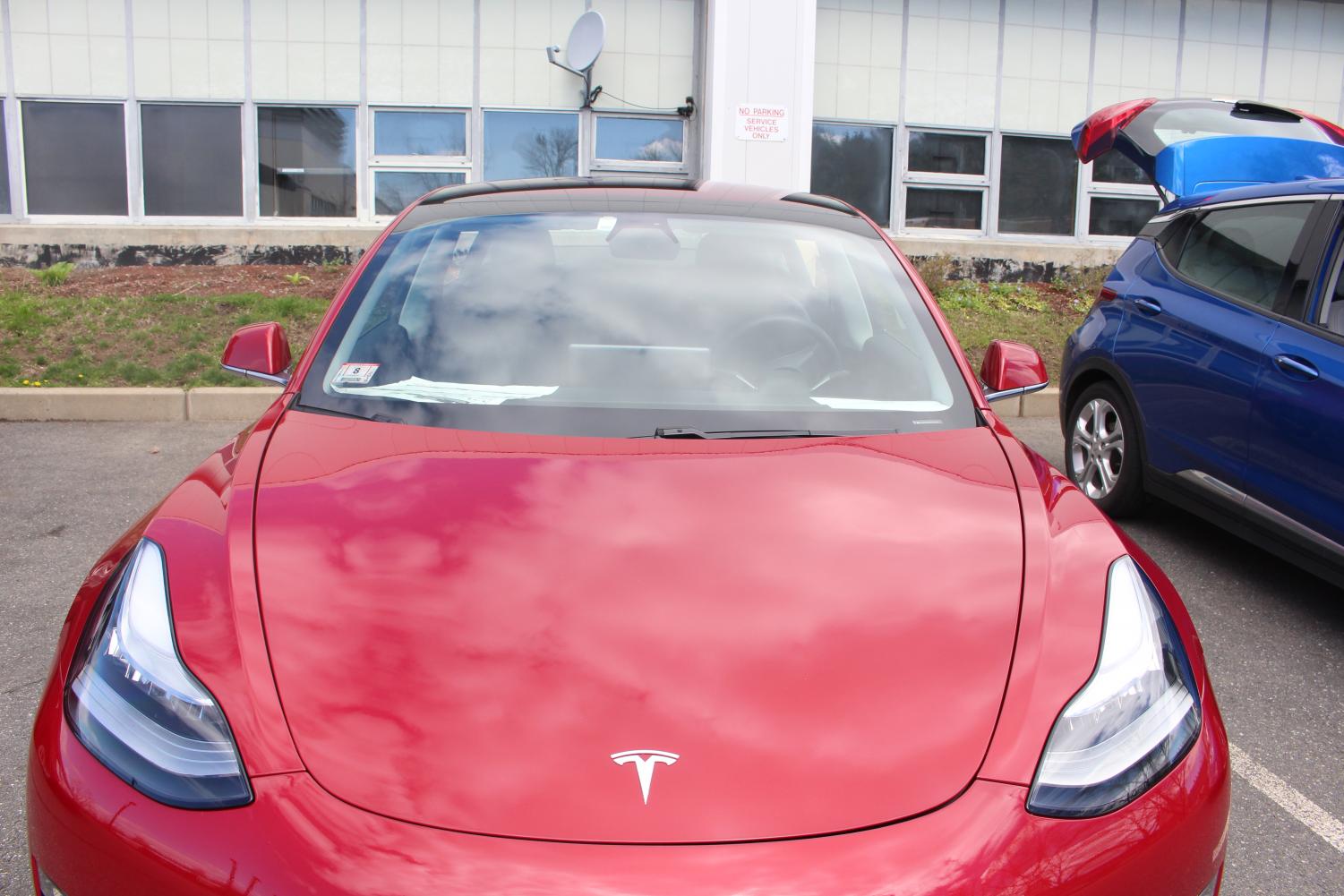
“The changeover is going to happen very suddenly,” Lochhead said. “For a long time people are predicting that 2020 is the year where you’re going to be able to build electric cars that will be cheaper than gas cars and when that happens it’s going to make no sense at all to buy a gas car.”
“Expect a really major disruption in the market in the very near future,” Lochhead added. “The good thing is in a very few years you’re going to be able to buy a bunch of electric cars at a reasonable price.”
“The electric car is just a much nicer car to drive,” Lochhead noted.
“In fact, I warn people,” he said. “I say ‘do not test drive an electric car unless you’re serious about buying it,’ because you’re just not going to be happy after you’ve driven one.”
Chris McLaughlin can be reached at [email protected] and followed on Twitter at @ChrisMcLJournal.

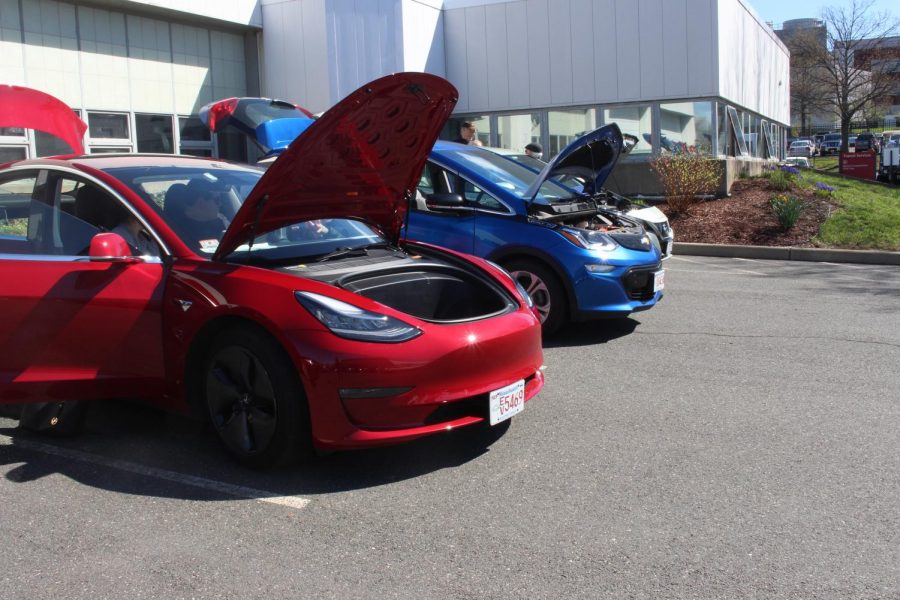











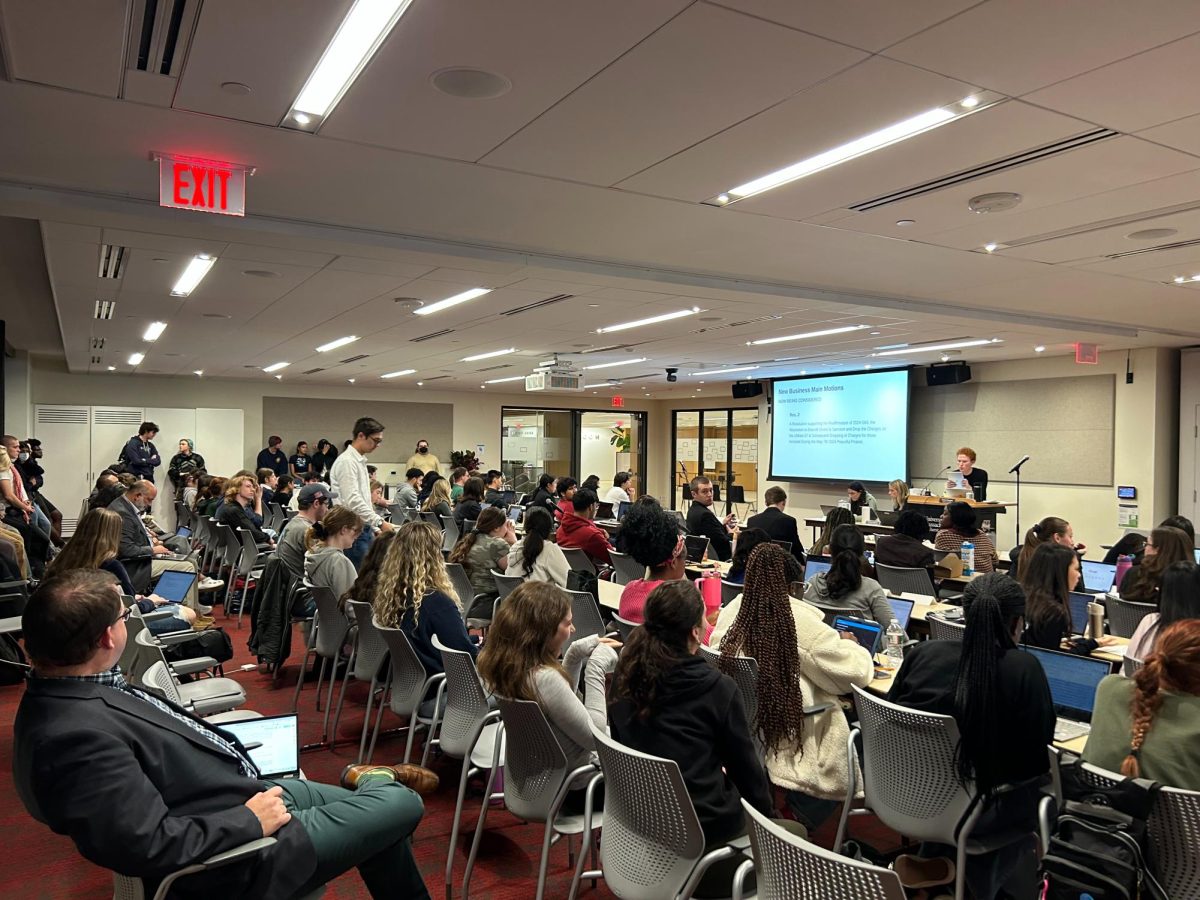


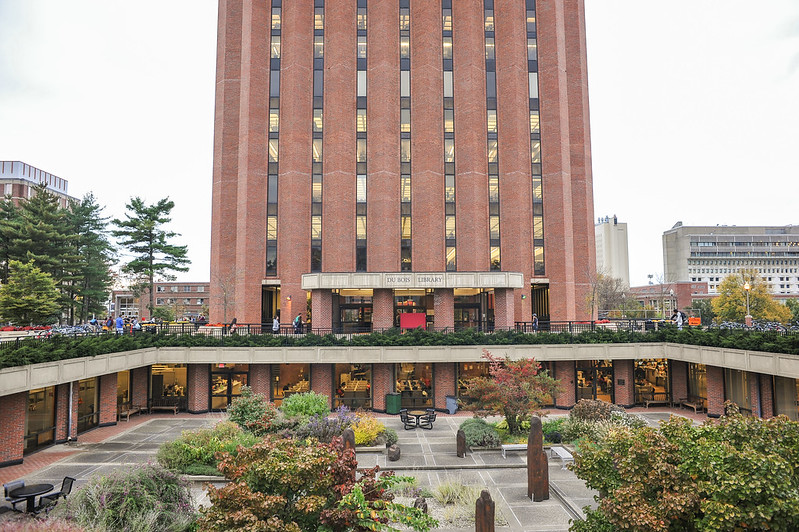


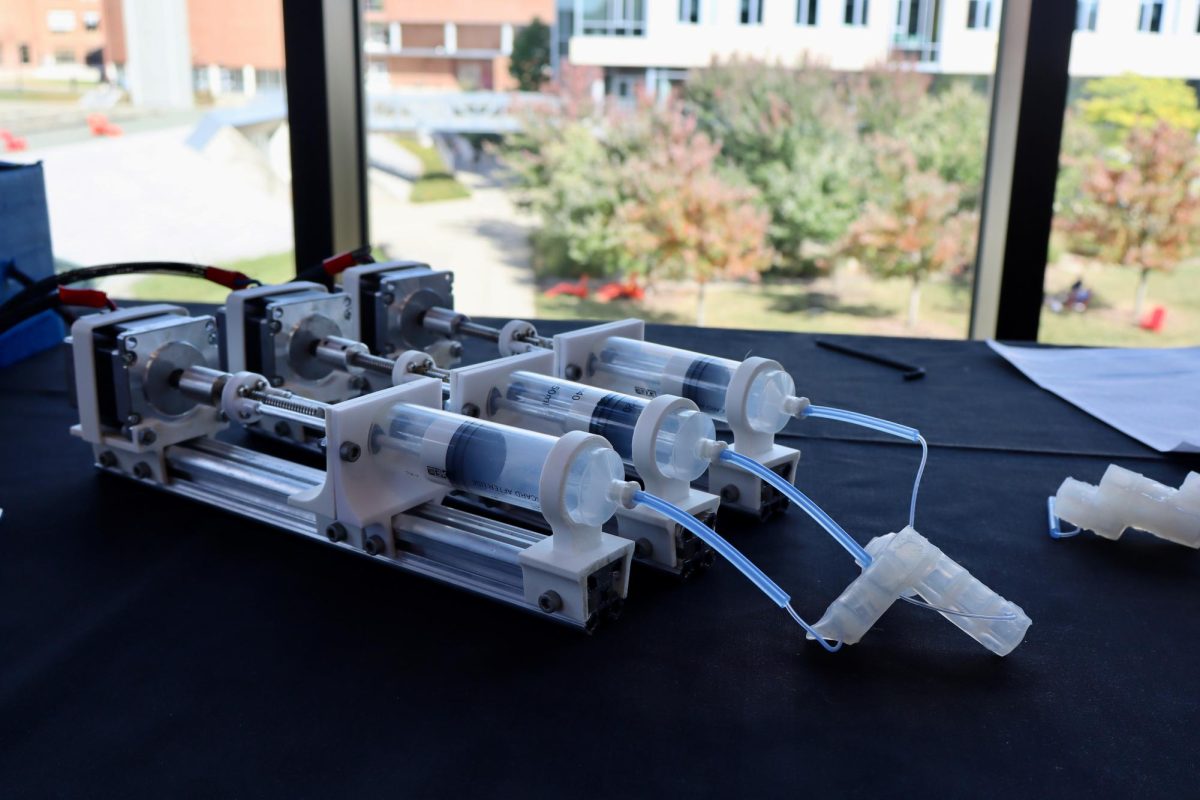
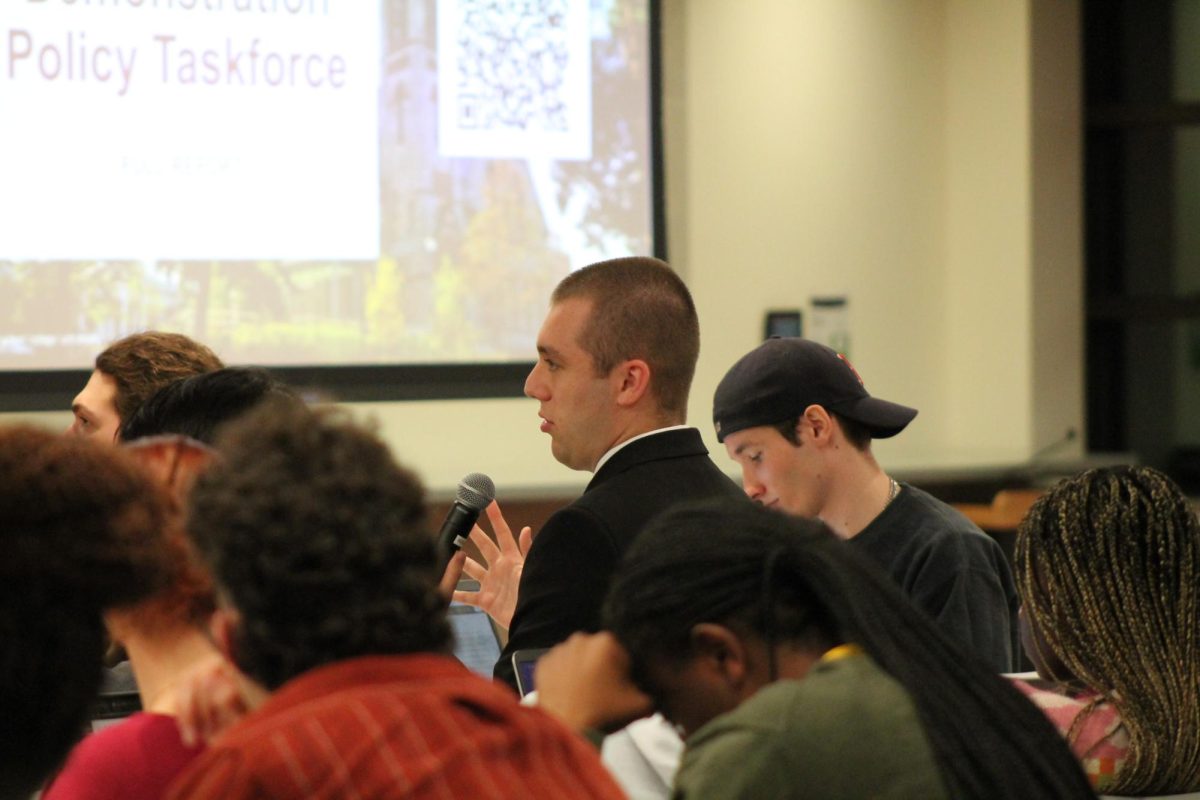
Sean • Apr 30, 2019 at 4:22 pm
If you do a little research you can see where our electricity comes from. On average the bulk is from natural gas and nuclear.
https://www.iso-ne.com/about/key-stats/resource-mix/
Dr. Wilbur Post • Apr 26, 2019 at 9:54 am
LMAO @ Dr. Ed. and Amy. Gee, maybe Massachusetts electricity comes from a number of sources, such as solar farms and wind farms. New England also has some nuclear power plants, hydro plants, and natural gas plants. Nice troll, though. Thanks for sharing.
joan tozzi • Apr 26, 2019 at 8:40 am
Instead of calling people “eco nuts”, how about we take it even further and have windmills and solar to generate electricity. I guess wanting clean water, clean air, clean oceans and recycling makes you an eco nut, because there’s no global warming, right?
Dr. Ed • Apr 25, 2019 at 12:29 pm
Where do they think the electricity is coming from?
.
COAL….
.
They just are moving the smokestack somewhere else…
amy • Apr 25, 2019 at 11:32 am
More idiotic social engineering at Umass. Did you know that electric cars on average in studies are shown to pollute more than gas cars? The electricity generated to power the electric car is usually dirtier than a car that uses gasoline as well as the enormous pollution generated from manufacturing the batteries.
But of course eco-nuts and people who just want to ‘feel good’ about ‘helping the environment’ don’t actually bother to use their brains. Similarly if you buy a new car you are adding an enormous amount of pollution, an environmentally responsible person would instead buy a used car, instead of adding to the massive amount of co2 and pollution generated by manufacturing a new car.
It’s so sad to see this sort of stupidity at a supposedly ‘rising’ university. All umass had done with this discount is incentivize pollution.